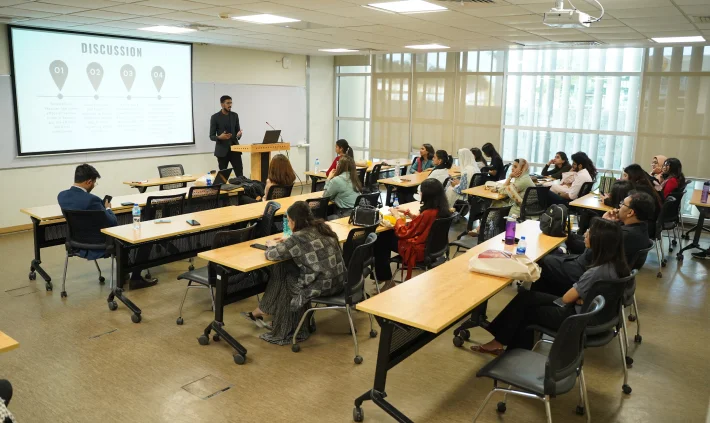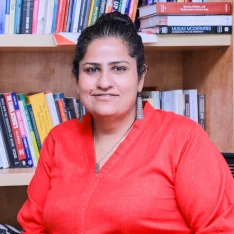Climate change, a global crisis, has heightened vulnerabilities worldwide. Over recent decades, the Intergovernmental Panel on Climate Change (IPCC) has observed a marked increase in extreme weather events and loss of biodiversity globally. This has amplified vulnerabilities in already fragile states, heightening the potential for violent conflicts and leading to human displacement and migration on an unparalleled scale. These global shifts highlight the heightened vulnerabilities of numerous regions, impacting countries like Pakistan profoundly.
Beyond the devastating 2022 floods affecting over 10 million people, Pakistan has grappled with various intense weather events. The climate-related disasters have heightened the country’s vulnerability to conflicts. As gender disparities and inequalities are exacerbated due to climate change, they contribute to societal tensions and conflicts. Within this, community building emerges as a crucial factor for fostering resilience and driving peace efforts. Engaged and empowered communities navigate adversities effectively and play a pivotal role in mitigating conflicts and facilitating sustainable peace-building processes.
The 'Aamozish e Tehqeeq — Navigating Climate, Gender, and Peace' conference seeks to explore how climate change, gender, and peace-building intersect. It focuses on understanding how climate change affects vulnerable groups, especially women and marginalized genders. The conference also aims to highlight how building community resilience is connected to efforts for peace, especially concerning climate change and gender with a focus on strengthening the capacity of young researchers in the field.
The conference aims to bring together a diverse spectrum of participants, ranging from young scholars to climate activists, artists, educators, and technology innovators. Its primary objective is to facilitate multidisciplinary dialogue, harnessing diverse perspectives and innovative strategies to cultivate resilient communities amidst the multifaceted challenges posed by climate change. Central to this conference is the recognition of the gendered dimensions of climate change impacts, emphasizing the pivotal roles of women in climate action, resilience-building, and peace efforts.
Structured across two days, the event will feature panel discussions, interactive talks, participatory sessions, skill-building workshops, artistic expressions, and a poster exhibition. As a culminating effort, the conference will compile a special edition publication of Tezhib, Habib University’s Undergraduate Research Journal, showcasing the research shared during the event. This publication aims to commemorate the invaluable contributions made by both students and experts.
The Aamozish e Tehqeeq (Translation: Learning & Research) conference focuses on five key themes, inviting diverse contributions that explore critical areas around climate, gender, and peace. Student researchers, artists, activists, and practitioners are encouraged to submit work aligning with these themes to fuel discussions shaping a sustainable and inclusive future.

Deadline to Submit Abstracts
Review and Selection of Abstracts
Announcement of Selected Participants
Audience Registration
Deadline to Submit Final Research Papers and Posters
Conference Dates
Shama Dossa, an Associate Professor at Habib University, brings over fifteen years of extensive community development experience across the Asia-Pacific Region. Holding a PhD in Adult Education and Community Development from the University of Toronto / OISE, her expertise in empowerment theory, adult learning, and participatory methodologies uniquely position her to lead the conference. With research interests spanning program planning, arts-informed research, transnational feminism, and gender-based violence, Shama's commitment to social justice initiatives aligns seamlessly with the conference's focus on innovative and inclusive discussions. Beyond academia, she actively collaborates with regional non-profits, demonstrating a dedication that mirrors the ethos of the conference.

Conference Chair:
Prospective applicants seeking further details or with inquiries regarding the conference may reach out to the conference coordinator, Arooma Naqvi, at arooma.naqvi@habib.edu.pk. Please include the subject line "Conference Inquiry" for prompt assistance. For submission guidelines, registration details, refer to the section titled "Guidelines for Registration". We welcome your questions and look forward to your active participation in shaping the dialogue at 'Aamozish e Tehqeeq — Navigating Climate, Gender, and Peace.